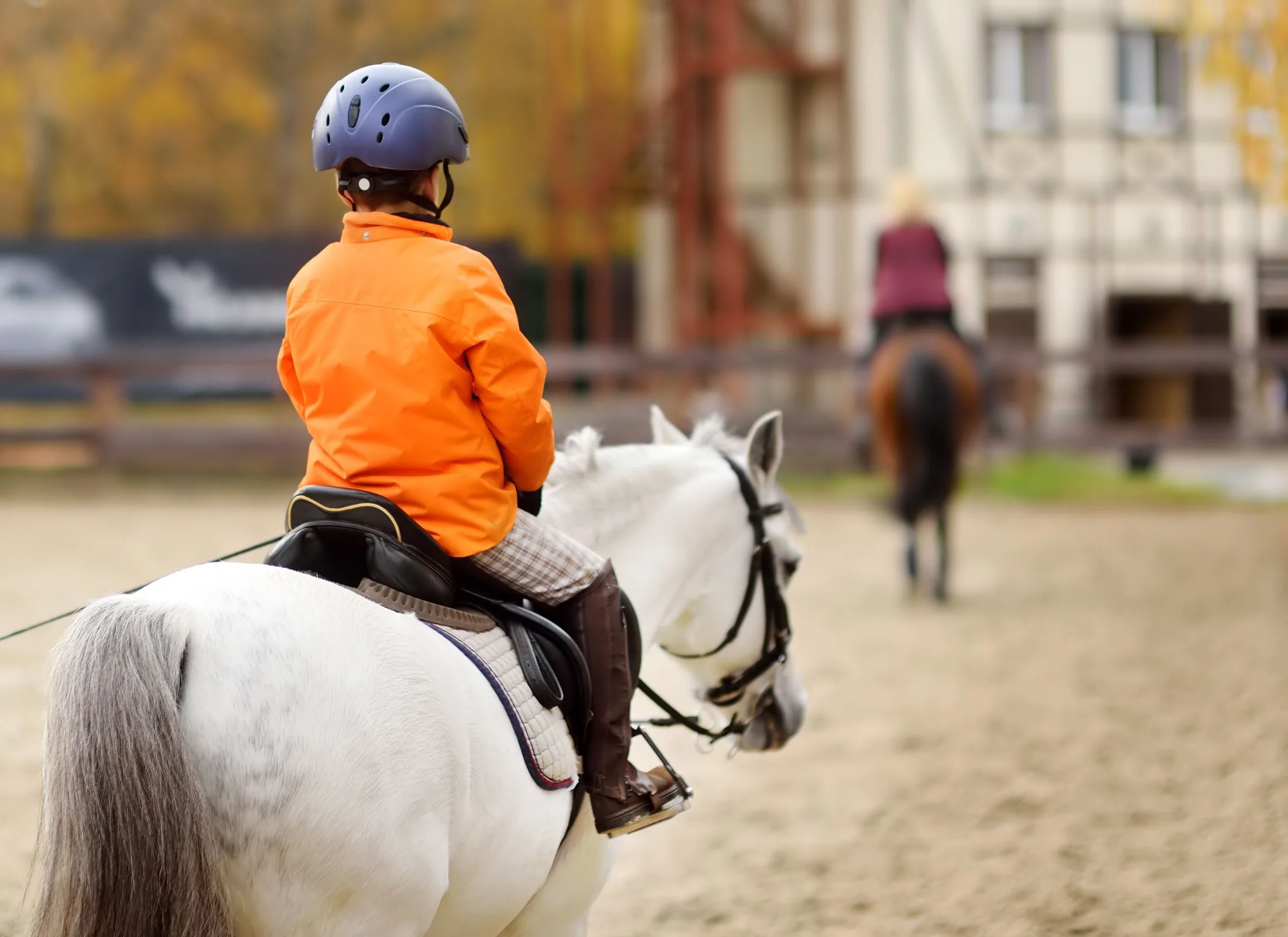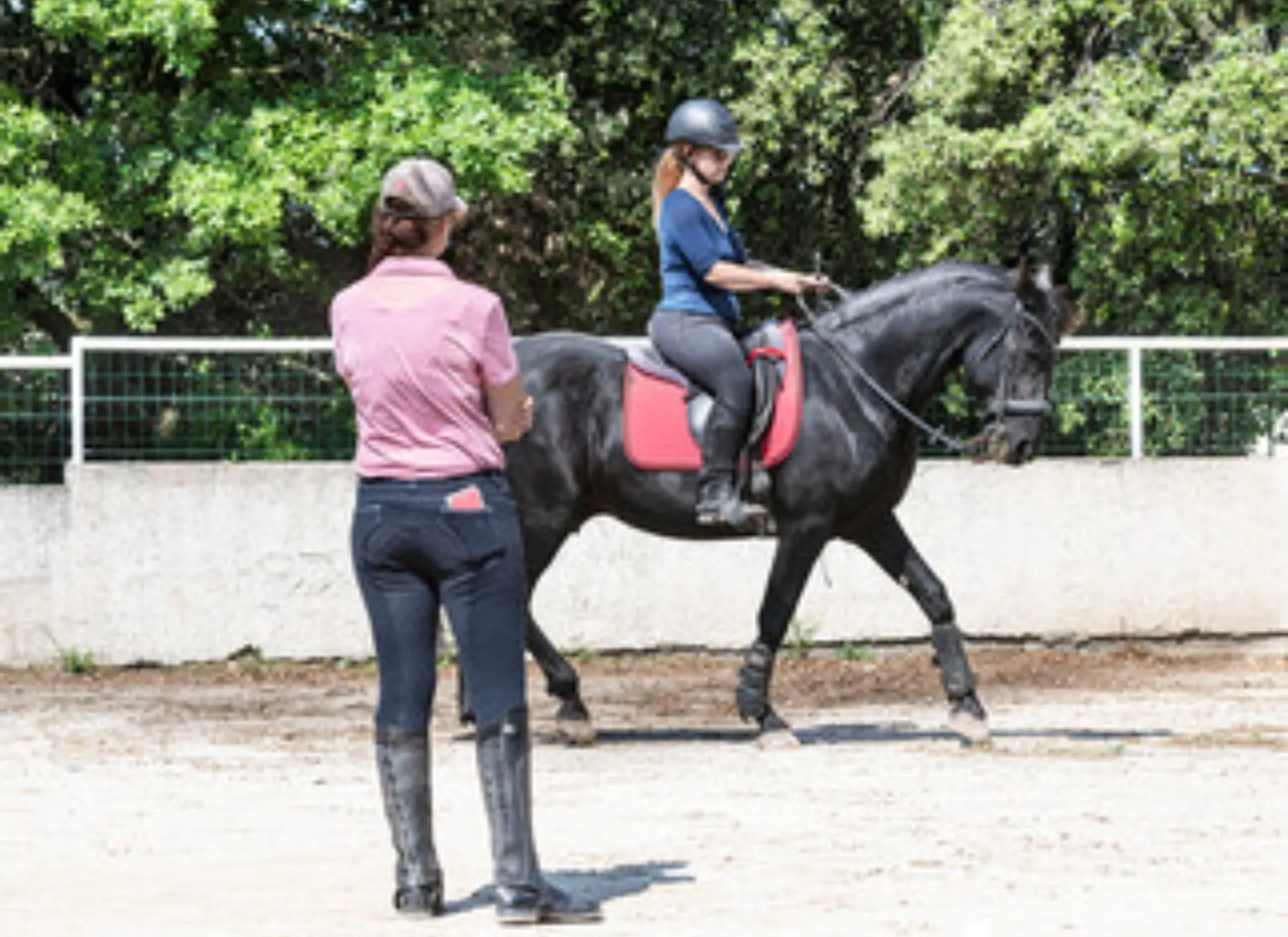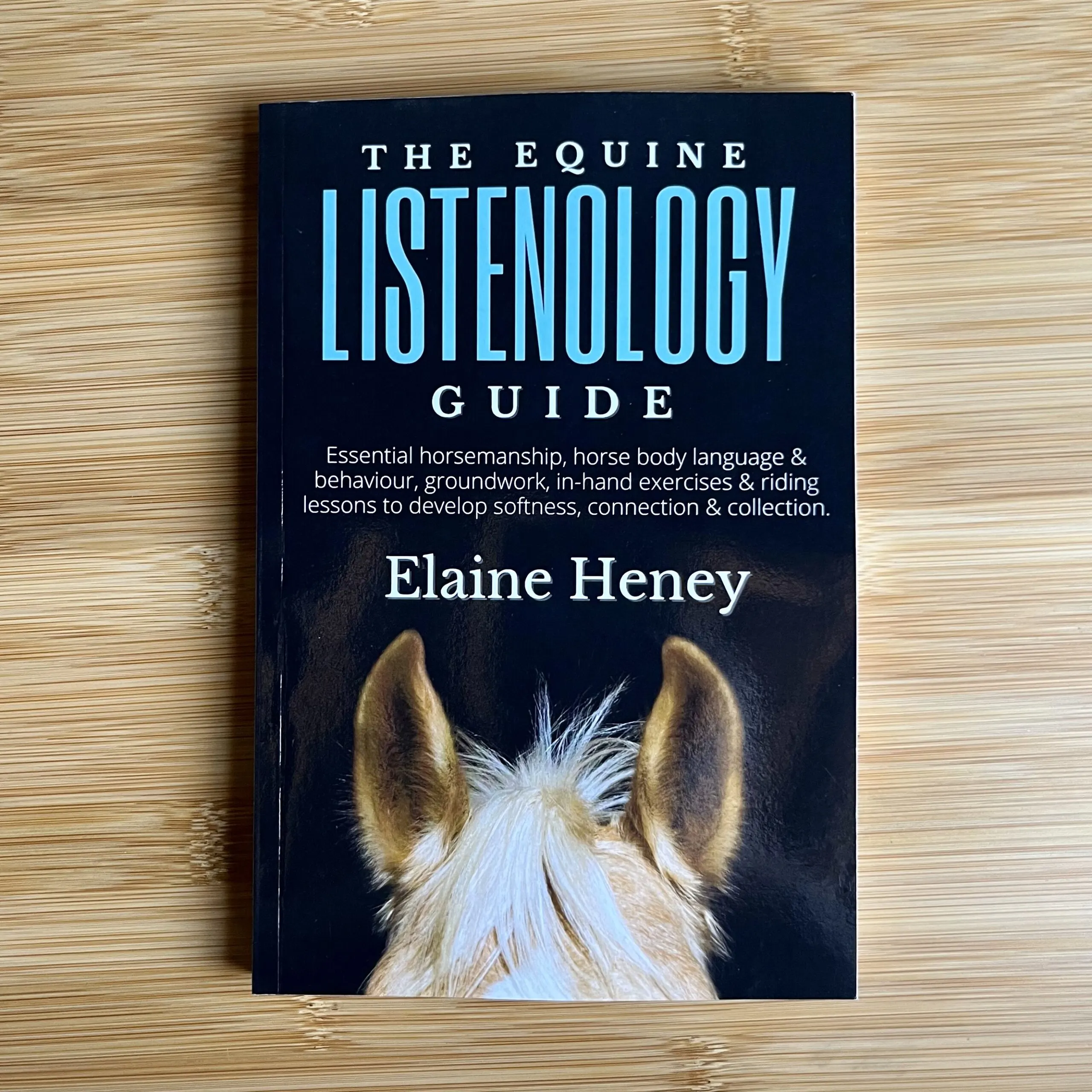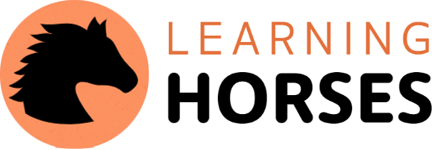Learning horseback riding takes practice, good advice, and (just like any sport) training.
How long it takes you to learn horseback riding will depend on several factors, which you’ll learn about in this article, including:
- 4 factors that determine how long it takes to learn to ride a horse
- 1 training tool that can make your learning curve MUCH easier
- And a guide to what new riders should know after 1 week, 1 month, 1 year, and beyond.
- Plus, a guide for parents to understand how kids learn horseback riding at a different pace.
4 Things Determine How Long it Takes to Learn to Ride:
- How often you ride,
- who you learn from, and
- your natural balance and athleticism.
- The horse you ride
If you are riding with an experienced riding instructor every day, you will learn much faster than riding once per week and teaching yourself. There is nothing wrong with riding occasionally or teaching yourself, but if you are only riding occasionally, it will take much longer to master the basics.
The horse we ride also plays a role in how quickly we learn to ride. Agreeable horses who listen to our cues and behave well make it easier for us to practice our balance, relax deep into a good seat, and learn proper cues. Disobedient horses, on the other hand make learning to ride much tougher!
Horse riding is a skill that takes most riders a lifetime to master, and you should never stop practicing the basics.

How it Actually Takes to Learn to Ride a Horse
Learning basic riding skills takes anywhere from 2 weeks to 6 months, depending on the things listed above.
Here’s some best-case and worse-case predictions for how long it will take to master the basics:
What you can learn in 1 week of horseback riding:
Riding every day with an instructor builds skills quickly. By the end of the first week of lessons, a daily rider can expect to know how to walk, trot, and turn their horse. They are rapidly developing muscle and balance to be stable in the saddle. (This is how many celebrities learn to ride horses quickly for films!)
Riding 1 time a week without instruction is slow going. After 1 ride, a rider without coaching may actually be learning bad habits that make learning to ride much slower! They can probably mount, walk, and turn their horse after one ride, but the horse may object (or be blamed for “misbehaving” if cued crudely)
Since most riders are able to train at a rate somewhere in between intense training and occassional rides, you can expect your skill to develop at your own pace.
What You Can Learn in 1 Month of Horseback Riding:
Riding every day with an instructor, a person can learn to ride a horse at an advanced beginner level by the end of month 1. After recovering from some major muscle soreness (click here for tips for preventing sore muscles after horseback riding), these riders have developed muscle, balance, and coordination. With good coaching, they’re able to maintain balance and correct posture at a walk, trot, and most likely canter. These riders may even be working on sitting trot, leg yield, or trotting over poles. At this point, this rider probably feels confident and calm in the saddle- as long as they’re riding a beginner safe horse.
Riding 1 time a week without instruction seriously slows down how long it takes to learn to ride. Even with the help or remote riding coaching or instructional videos this rider may be building all the wrong muscles as they ride with shoulders hunched forward for balance or heels drawn up for a sense of stability. They are likely trotting after 4 weekly rides, but are a long way from feeling confident in the saddle.
Don’t Rush the Process!
Like all of the other skills you have learned, horse riding is not something you master in just a few weeks. For example, think about learning to draw. You don’t just pick up a pencil one day and have the skill to paint a masterpiece. It takes years of practice to sketch a photorealistic portrait. It is the same when you are learning to ride a horse.
Horse riding takes time, as you acquire new skills and develop muscle, so don’t feel like you need to rush the process of learning to ride a horse.
Even once you become an expert in the field, you will still be learning. Almost a decade after I started riding, I still needed occasional reminders to keep my heels down (one of the most basic skills of horseback riding!). Riders never stop learning, and we never “finish” learning to ride.
Be Kind to Yourself While Learning
Don’t compare your progress to other riders or feel discouraged if you don’t master a specific skill on time. Everyone learns at a different pace. Not only that, but the rider you are comparing yourself to may be able to take two or three lessons a week! If someone is riding two or three times more often than you, they will probably progress faster, that’s normal.
Just Focus on doing your best and having fun. If you want to learn faster and cannot ride as often as you’d like, read our article on how to physically train riding without riding. With persistence, one day you will realize that you are the advanced rider all the beginners look up to.

How Horseback Riding Lessons Help Us Learn (much) Faster
Riding lessons are the most common way to learn to ride a horse.
Good riding instructors (often, but not always, signaled by certification) are teachers. They understand how people learn and the psychology of horsemanship- not just the skills you need to learn.
Good riding instructors make it faster to learn how to ride a horse, and they know how to make the learning process fun!
If you have access to riding lessons with an instructor, it is the best way to learn. Click here to learn what to expect in your first riding lesson and things to look for in a good riding instructor.
Some riders naturally take to the sport much faster, and others will take longer than the usual two years to learn.
When you start taking lessons, the important thing to remember is that horse riding takes years to develop the skill. Resist the temptation to get discouraged if you aren’t jumping after two or three lessons! It is normal and expected that you won’t “find your seat” until you’ve been riding a few months.
How Long it Takes Kids to Learn to Ride
While I’d be remiss without starting by saying that every kid learns at their own pace, most kids learn to ride horses with confidence much faster than adults- roughly 30% faster, in my experience.
Why? Simple: They’re fearless!
Adults tend to cling to their horse’s back and feel a thrill of terror every time their balance gets knocked a bit off, but most kids don’t have the same struggles. Instead, kids are very willing to experiment with balance, relax, and fall without fear.
Because of this, kids learn to ride horses much faster than adults, when all else is equal. However, this is also why adults in charge must have and enforce helmet requirements1 and make sure kids don’t progress to speed events or jumping before they’ve developed the core strength, balance, and seat to handle it.
How Many Lessons Will it Take to Learn to Ride?
The general schedule most riding schools follow for people taking one lesson per week takes around three years to complete. The usual breakdown looks something like this.
Year one: The first year of lessons is when you learn the core basics. That means you will learn how to catch, lead and groom a horse. You will also learn to tack up your horse (except for some barns where this is done by grooms).
The first year of riding focuses on basic riding skills. This includes walking and trotting with the correct posture and body movement. It is also quite common for students to learn to canter in the first year, but that depends on how well the individual rider progresses
Year Two: Year two gets a bit more fun! In your second year of riding, you will work on more advanced horse care skills. You will also learn to ride a horse outside the arena. That means trail rides!
At many english riding stables, the 1 year mark is where you’ll begin having an option to take jumping lessons. At western barns, 1 year of riding may mean you are able to begin training for speed events.
Year Three: By the end of your third year of learning to ride horses, you are becoming quite skilled at the basics. That means that you probably have the required skills to consider buying your own horse. Congratulations!
This schedule is different if you ride more or less often than once per week. Riding multiple times per week, you can complete all three of these stages in about a year.2
If you can only ride once per month, it will take longer than three years to achieve this- but don’t let that stop you. If you love horses and want to learn to ride, it doesn’t matter if it takes you one year or ten years. The time and effort is worth it in the end.
Final Thoughts
Horseback riding offers a good workout and calms the soul. However, it takes a long time to develop your riding skill. If you decide to learn to ride, make sure you are doing it because it is something you want to do and not just to impress your friends or family with how quickly you can learn.
When you choose to ride for enjoyment, the hard work and soreness are much easier to endure. Every day that you choose to ride, your skill will improve. Never stop riding and never stop learning, and eventually, you’ll be an expert horseback rider.
The following section may contain affiliate links. As an Amazon Associate, we earn from qualifying purchases.

Want to do some helpful learning outside of simply riding? Check out this read: The Equine Listening Guide. It is a great resource for all things equestrian, including stories from other riders and how-to’s for readying yourself (and your horse) for riding! Purchase here from Amazon, or here from a small bookseller.
- Bond, G. R., Christoph, R. A., & Rodgers, B. M. (1995). Pediatric equestrian injuries: assessing the impact of helmet use. Pediatrics, 95(4), 487-489. [↩]
- Wanless, M., Houghton, K. (1997). Ride with Your Mind Masterclass: An Illustrated Guide to Right Brain Riding. United Kingdom: Kenilworth Press. [↩]

Lisa
Tuesday 8th of November 2022
Please could I quote your article on my Facebook page? You give some really useful points.
Tatum Norris
Thursday 10th of November 2022
Certainly! You may, as long as you also provide a link back to the source.